Who are the new, most powerful men in China?
China’s ruling Communist party unveils its seven-man leadership team – so who are the men who will run China for the next five years?
The newly appointed members of the party’s politburo standing committee, reduced from nine to seven in a bid to expediate the decision-making process, have an average age of 63.4 years and are seen as a conservative line-up.
Ahead of them lie the challenges of corruption and slowing economic growth, and doubts have been raised over how willing the standing committee will be to implement radical reforms.
At the head of the committee is new general secretary, Xi Jinping. As general secretary is it expected he will take over China’s presidency in March.
“Words from the new leadership will be reform-minded, but deeds would be very cautious at least in economic and financial restructuring,” says Alberto Forchielli, managing partner of Mandarin Capital Partners in Shanghai.
“I expect little change. Nothing radical. None will do any different than in the past unless there is a crisis. In political terms, the 18th congress means continuity mainly with some strong statements, already heard, but difficult to execute in practice.”
Read Lindsey Hilsum's blog on a "new tone" from the Communist Party's leadership.
However, Davide Cucino, president of the European Union chamber of commerce in China, said he is confident the standing committee will take action, because it is “urgent”.
He said: “The transition of power offers the new leaders an historic opportunity to quickly implement a decade of stalled reforms that would allow China to shift its economy to a new stage of sustainable growth and towards a more inclusive, higher income society.
“This will not be an easy task, but we are confident that the new leaders will take bold moves because they know that the required reforms are not only necessary, but now also urgent. In not doing so we see the risk of dangerous outcomes in the business environment.”
Of the seven members of the standing committee, five of them are 64 or over. Under Communist party rules this means they will have to stand down at the next national congress, which will take place in 2017.
There were ten candidates for promotion to the standing committee. The three who did not make the cut were Wang Yang, Guangdong party boss, and Li Yuanchao, party organisation head. One source, linked to the party leadership, reportedly said the pair did not ascend to the standing committee because party elders thought they were too liberal.
Liu Yandong, the lone female candidate, also missed out on joining the Communist party’s decision-making elite.
So who is now in charge?
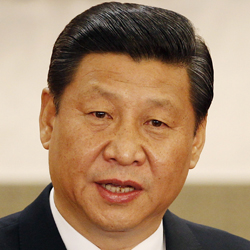
Xi Jinping
A member of China’s “princeling” generation, the children of communist revolutionaries, whose father, Xi Zhongxun, fought alongside Mao Zedong in the Chinese civil war.
After studying chemical engineering he moved into provincial politics – and was promoted to governor of the Fujian province in 1999. He became party boss of the neighbouring Zhejiang province in 2003. In 2007 a fraud scandal led to the departure of Shanghai’s party boss, and Xi took over.
He moved into China’s political elite when elected to the politburo at the 15th national congress of the Communist party of China, and then rose to the standing committee at the 17th national congress. In 2008 he was appointed vice-president of China, paving his way for the top job within the Communist party. He was also tasked with organising China’s preparation for the 2008 Beijing Olympic Games.
He is married to famous Chinese folk singer Peng Liyuan.
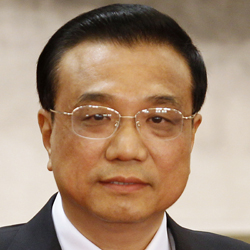
Li Keqiang
Xi’s number two, and the man expected to become prime minister of China, was the son of a local rural official in China’s Anhui province. He rejected his father’s suggestion that he go into local politics, and instead went to study law at Peking University.
He was China’s youngest governor when he took over in Henan province, and he was credited with transforming the area’s economic performance. He then moved to be party chief in Liaoning before his election to the standing committee in 2007.
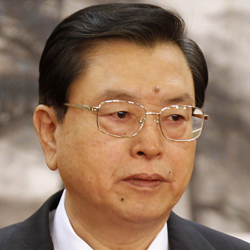
Zhang Dejiang
When disgraced, former Communist party rising star Bo Xilai was expelled from the party earlier this year, following his wife’s conviction for the murder of Neil Heywood, Zhang Dejiang stepped into the vacant position as party chief of Chongqing.
He studied economics at Kim Il-sung University in North Korea, and was party chief of China’s economic powerhouse Guangdong province. He is also close to former president Jiang Zemin, who still wields influence in Chinese politics.
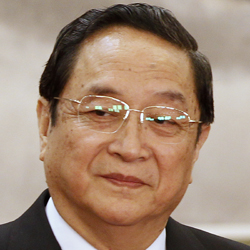
Yu Zhengsheng
The 67-year-old is the party boss of China’s most cosmopolitan city, Shanghai. He was a rising star of Communist politics in the mid-1980s until his brother, an intelligence official, defected to the United States. It has been reported that Yu’s political careeer was saved by the fact that he is close to Deng Pufang, son of the late Chinese leader Deng Xioapang.
He returned to the politburo in 2002.
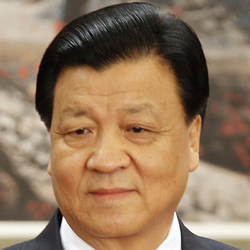
Liu Yunshan
A background in media, including time working as a reporter for China’s state-run news agency Xinhua, could mean 65-year-old Liu is set for a role in charge of propaganda and ideology.
He has been a minister of China’s propaganda department since 2002, and has sought to control China’s internet which has 500 million users. He has been serving in the politburo for two, five-year terms.
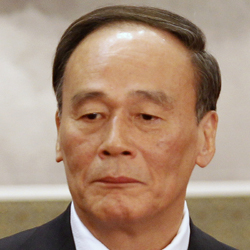
Wang Qishan
Wang is seen as the biggest reformer of the seven standing committee members, but it appears likely that he will not be tasked with solving China’s financial problems, and will instead focus on rooting out corruption.
He is an ex-mayor of Beijing and is also the only member of the committee to have been a chief executive of a corporation – he ran the state-owned China Construction Bank from 1994 to 1997.
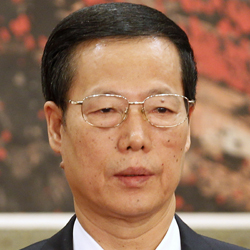
Zhang Gaoli
Zhang has leadership experience in some of China’s most economically advanced provinces, such as the northern port city of Tianjin and in Guandong.
He trained as an economist and has worked in the oil sector in the 1970s and early 1980s. He is seen as an advocate of greater foreign investment into China.
-
Latest news
-
Boy with profound learning disabilities reaches out of court settlement after abuse in residential school7m

-
India election: Modi rivals hit by string of raids and arrests7m

-
Can UK’s abandoned mines be used to build a greener future?5m

-
Sycamore Gap: Man pleads not guilty to felling iconic tree2m

-
‘Child poverty has not fallen since Tories came in’, says Gordon Brown5m

-




